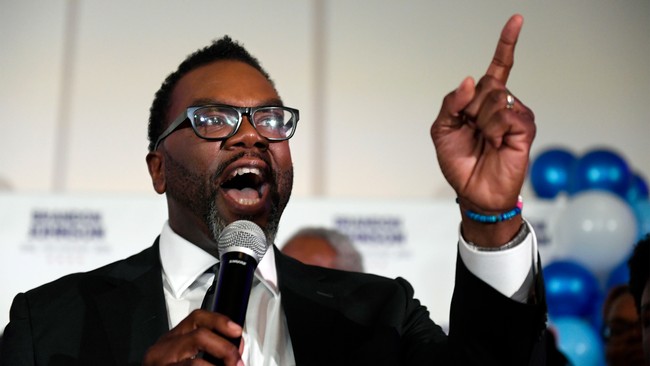Cam Newton, a former NFL quarterback who won an MVP award and played in the Super Bowl, became a household name by facing off against defenders eager to knock his head off. However, in a recent interview on his “Funky Friday” podcast, Newton revealed that the thought of marriage frightens him more than the prospect of being sacked by a 300-pound NFL lineman.
Newton told Dr. Cheyenne Bryant, a life coach and self-described “psychology expert,” that he currently has eight children with three women and wants more. He admitted, “My desire to get married is lower than my fear of getting divorced.” Bryant responded by criticizing him, saying he is creating broken homes and selfishly depriving his children of his presence.
Marriage is about two becoming one, and you don’t need to be an expert to understand that it’s easier to shape two young saplings than two mature oak trees.
The saddest part of the entire exchange wasn’t Newton’s comments; it was the fact his perspective is so common in American culture.
The share of Americans over 40 who have never married rose from 6% in 1960 to 25% in 2021. The median age at first marriage increased from 23 for men and 20 for women in 1960 to 30 and 28, respectively, in 2023. Married-couple households have declined from 74% in 1960 to 47% in 2023. Roughly 40% of American children are now born to unmarried parents, reflecting a trend where adults put their desires over the needs of children.
Progressives often argue that financial resources, not parental relationships, are what matter in raising children. However, decades of research contradicts this belief, showing that children in nuclear families perform better across various outcomes compared to those raised in other family structures. Children with both parents are more likely to attend college and less likely to live in poverty or go to prison. In contrast, the absence of a father correlates with higher rates of poverty, teen pregnancy, youth crime, and substance abuse.
This shouldn’t surprise anyone. A man who stands before God and family to commit to one woman for the rest of his natural life is exhibiting a much higher level of commitment than one whose only connection to a woman is the child they share. This is why marriage is the greatest structural enabler of father involvement.
Marriage also accounts for the duties and obligations husbands and wives have toward one another. The pledge to uphold the marital union “in sickness and in health” is not part of any co-parenting vow for a reason.
Simply put, putting “marriage before carriage” benefits everyone in the household. That is one reason every American should become familiar with the “Success Sequence” that shows 97% of Millennials born between 1980 and 1984 who finished school, secured employment, and married before having children were not poor by their mid-30s. That message is tangible, achievable, and measurable.
Newton raised another important point in his conversation with Bryant that received far less attention than his comments about wanting more children. He questioned why a 41-year-old relationship coach like Bryant has never married or had children. Bryant, who revealed she has been engaged four times, responded that people should take their time in choosing a “life partner” instead of “rushing to the altar just to become a divorcée or baby mama.”
Desiring to marry one person and stay with them for life is admirable, but society cannot thrive if adults wait until their mid-40s to feel ready for marriage. Social scientists view the “cornerstone” model of marriage as the foundation of a life that a man and woman, usually in their 20s, build together. In contrast, the “capstone” model delays marriage until after achieving career success and financial stability. Bryant’s approach —waiting until everything is perfect before marrying — fits what I call the “tombstone” model, where people marry with more of their life behind them than ahead.
This approach is not ideal for those who want children, and it may not even suit those seeking a long-lasting relationship. Marriage is about two becoming one, and you don’t need to be an expert to understand that it’s easier to shape two young saplings than two mature oak trees.
Cam Newton is a multimillionaire. He was one of the best players of his generation. He can give his children the world, but I’m sure his presence means much more to them than any presents they ask for.
The same is true for every parent. Most Americans will never be as rich as a professional athlete. That doesn’t stop us from giving our children the ultimate MVP (most valuable privilege): a loving household with a married father and mother committed to one another and their children. That is far more valuable than anythingmoney can buy.
Read the full article here





![Pamela Anderson Reveals Near-Attack on Plane Over Mistaken Identity [WATCH] Pamela Anderson Reveals Near-Attack on Plane Over Mistaken Identity [WATCH]](https://www.lifezette.com/wp-content/uploads/2025/01/2025.01.09-09.48-lifezette-6780444948e8c.jpg)




![Biden Celebrates Great-Grandchild, Dodges Reporters During California Wildfire Briefing with Newsom [WATCH] Biden Celebrates Great-Grandchild, Dodges Reporters During California Wildfire Briefing with Newsom [WATCH]](https://www.lifezette.com/wp-content/uploads/2024/09/2024.09.03-07.26-lifezette-66d762d64ebbd.jpg)